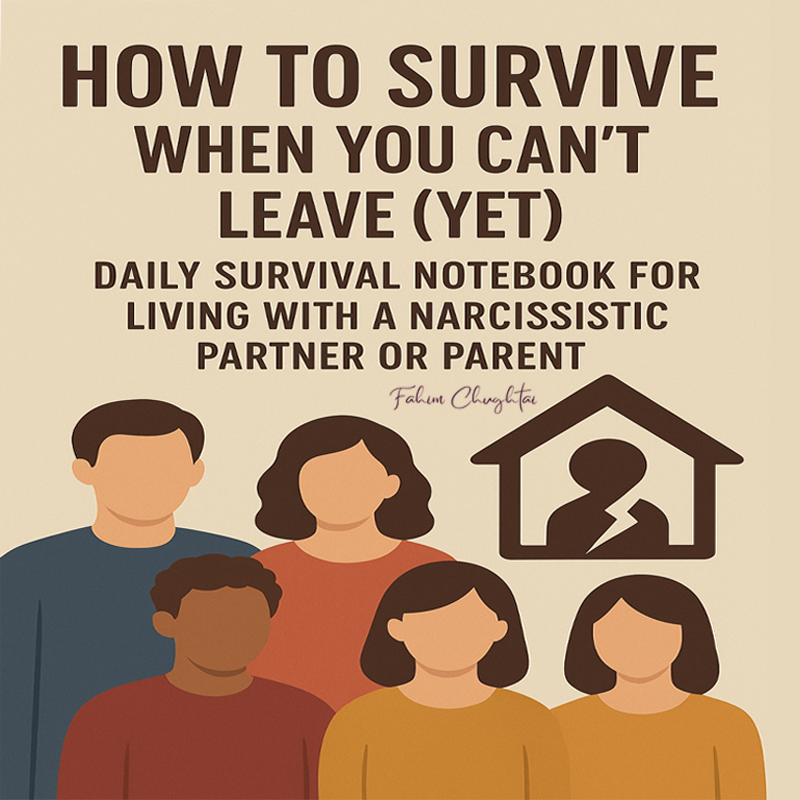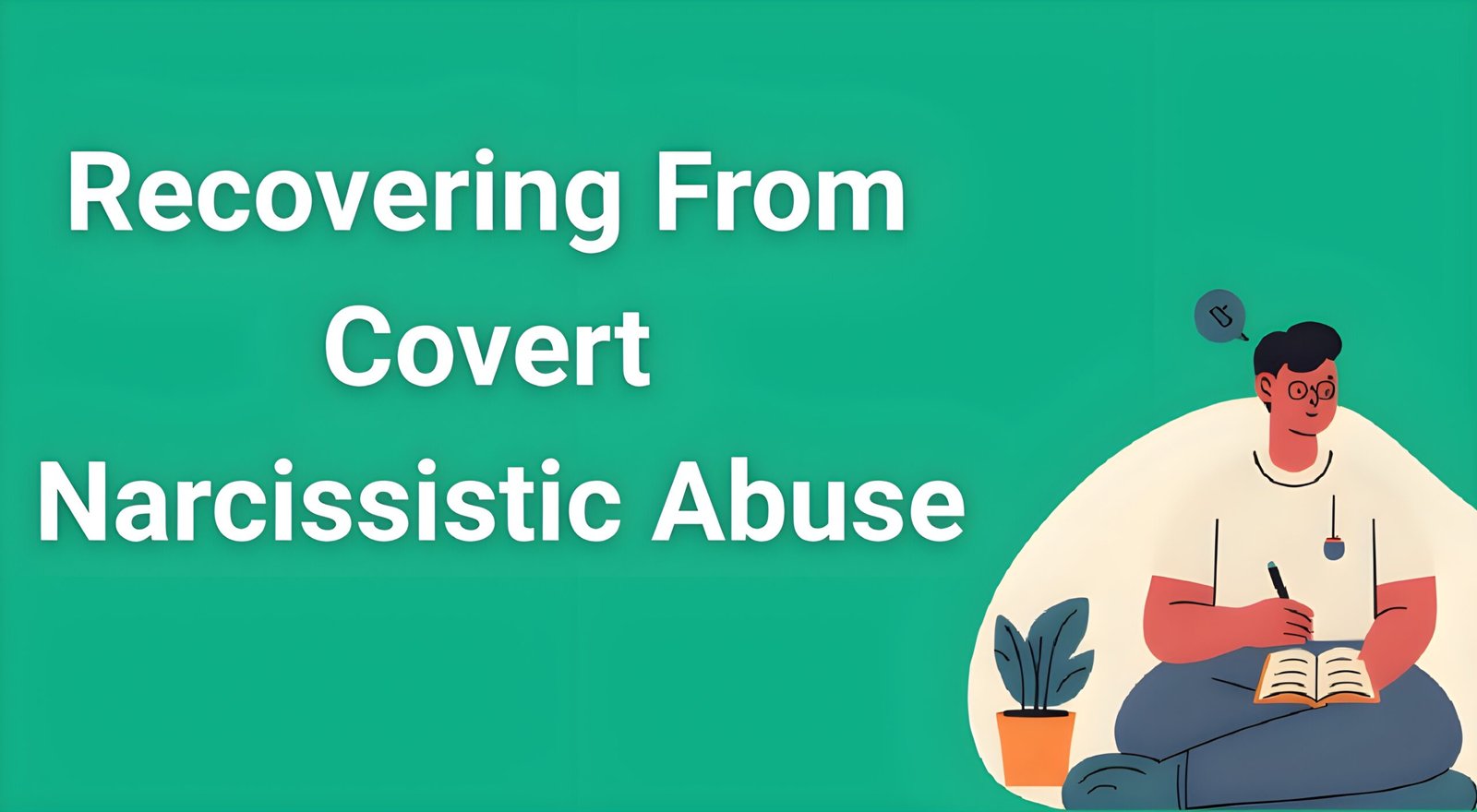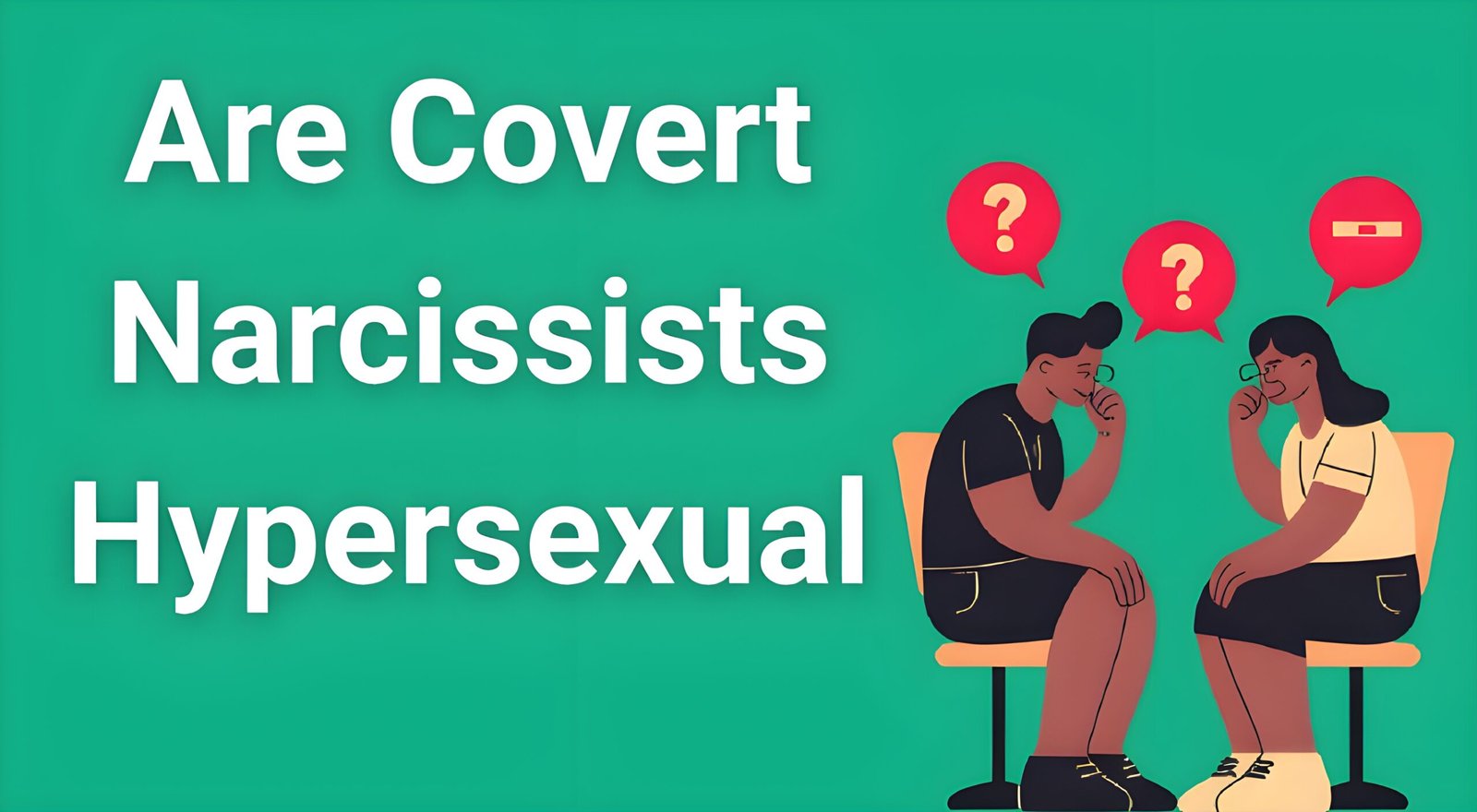If you’re reading this, chances are you’re desperately seeking answers about whether what you experienced with a covert narcissist was genuine love or something else entirely. The question “can covert narcissist love” has likely consumed your thoughts, especially during those 3 AM moments when you’re replaying every conversation, every gesture, every promise they made.
- Understanding Covert Narcissism and Love: The Foundation
- Can Covert Narcissist Love? The Scientific Answer
- The Covert Narcissist Love Bombing Phase: Why It Feels So Real
- The Devaluation: When Covert Narcissist “Love” Turns Cold
- The Trauma Bond: Why You Can’t Just “Get Over” Their Love
- Breaking Free: Recognizing the Difference Between Love and Manipulation
- The Healing Journey: Breaking the Trauma Bond
- The Impact on Children: Can Covert Narcissists Love Their Kids?
- Red Flags: Distinguishing Covert Narcissist “Love” From Authentic Love
- The Path Forward: Rebuilding Your Capacity for Authentic Love
- Frequently Asked Questions
- Conclusion: The Truth That Sets You Free
You’re not alone in this confusion. Thousands of survivors have asked this exact question, and the answer, while difficult to accept, will finally give you the clarity you’ve been searching for.
Understanding Covert Narcissism and Love: The Foundation
Before we dive into whether a covert narcissist can love, it’s essential to understand what covert narcissism actually looks like. Unlike their overt counterparts who display grandiose behavior openly, covert narcissists hide their self-centered nature behind a mask of vulnerability, sensitivity, and apparent empathy.
These individuals appear humble, even self-deprecating, yet harbor the same core narcissistic traits as overt narcissists. They possess an inflated sense of self-importance, lack genuine empathy, and constantly seek validation and admiration. The difference lies in how they express these traits – through subtle manipulation, passive aggression, and playing the victim.
Am I Dealing With a Covert Narcissist — or Just Toxic Behavior?
The Neuroscience Behind Narcissistic “Love”
Research in neuroscience reveals that narcissists, both overt and covert, have structural differences in brain regions responsible for empathy and emotional connection. The anterior cingulate cortex and the precuneus, areas crucial for understanding others’ emotions and forming genuine bonds, show reduced activity in individuals with narcissistic personality disorder.
This neurological reality means that what a covert narcissist experiences as “love” is fundamentally different from authentic love. Their brain simply doesn’t process emotional connection the same way a neurotypical person does.
Can Covert Narcissist Love? The Scientific Answer
The straightforward answer is no – a covert narcissist cannot love in the way you understand love. However, this doesn’t mean they don’t experience intense feelings or that their expressions of affection are entirely fabricated. The confusion lies in understanding what they’re actually experiencing when they believe they’re “in love.”
What Covert Narcissists Experience Instead of Love
When a covert narcissist says they love you, they’re describing a complex mix of emotions that includes:
Idealization and Projection: They fall in love with their idealized version of you, not the real you. You become a projection screen for their fantasies about the perfect partner who will heal their deep-seated shame and make them feel whole.
Narcissistic Supply Addiction: What feels like love to them is actually an addiction to the validation, attention, and emotional energy you provide. You become their drug of choice, and their “love” is really their dependency on how you make them feel about themselves.
Possession and Control: Their intense feelings stem from a desire to possess and control you rather than genuinely connect with you. This explains why their “love” often feels suffocating and why they become hostile when you assert boundaries.
Emotional Fusion: Covert narcissists struggle with healthy boundaries and often experience emotional fusion, where they cannot distinguish between their emotions and yours. This creates an illusion of deep connection that’s actually codependency.
The Covert Narcissist Love Bombing Phase: Why It Feels So Real
Understanding why covert narcissist “love” feels so authentic is crucial for your healing. During the love bombing phase, they genuinely believe they’re experiencing love because their brain chemistry is flooded with dopamine and oxytocin. However, this biochemical response is triggered not by genuine affection for you, but by the narcissistic supply you provide.
Signs of Covert Narcissist “Love” Bombing
Unlike overt narcissists who use grand gestures, covert narcissists employ subtler tactics:
Excessive Attentiveness: They seem incredibly tuned in to your needs and emotions, but this attention is strategic rather than genuine. They’re gathering information about your vulnerabilities and desires to use later.
Emotional Mirroring: They become exactly what you need them to be, reflecting your values, interests, and emotional states back to you. This creates a false sense of soulmate connection.
Victim Bonding: They share their pain and trauma with you early in the relationship, creating an artificial sense of intimacy and positioning themselves as someone who needs your healing love.
Future Faking: They paint elaborate pictures of your future together, making plans and promises that feel genuine in the moment but lack authentic intention.
The Devaluation: When Covert Narcissist “Love” Turns Cold
The shift from love bombing to devaluation reveals the true nature of covert narcissist “love.” Once they secure your attachment, their brain’s reward system adapts, and you no longer provide the same dopamine hit. This is when their true self emerges.
Why the Love Feels Like It Disappears Overnight
From a neurological perspective, the covert narcissist’s brain has habituated to your presence. The novelty has worn off, and without that dopamine rush, they no longer experience the intense feelings they interpreted as love. Additionally, as you become more comfortable in the relationship and start expressing your authentic self, you inevitably fail to match their idealized projection.
This is when you might notice:
Emotional Withdrawal: The person who once seemed so emotionally available becomes distant and cold.
Passive Aggressive Punishment: They punish you for not maintaining the perfect image they fell in love with, but they do it through subtle means that leave you questioning your own perceptions.
Blame Shifting: Suddenly, you’re responsible for the change in their feelings. They claim you’ve changed or that you’ve somehow disappointed them.
Intermittent Reinforcement: They occasionally show glimpses of their former loving behavior, keeping you hooked and hoping for a return to the early days.
The Trauma Bond: Why You Can’t Just “Get Over” Their Love
Understanding trauma bonding is crucial to answering whether covert narcissists can love, because it explains why their manipulation feels like love to both you and them. Trauma bonding occurs when intermittent reinforcement creates powerful neurochemical addiction-like responses in your brain.
The Science of Trauma Bonding
When a covert narcissist alternates between affection and withdrawal, your brain releases stress hormones like cortisol alongside bonding hormones like oxytocin. This creates a biochemical addiction that’s stronger than cocaine dependency. Your brain literally believes you need this person to survive.
This explains why logic doesn’t work when you’re trauma bonded. Your nervous system is in survival mode, interpreting any attempt to leave as a life-threatening situation. The covert narcissist isn’t consciously creating this bond, but their dysregulated attachment style naturally creates these dynamics.
Breaking Free: Recognizing the Difference Between Love and Manipulation
True love has consistent characteristics that covert narcissist “love” lacks:
Consistency: Real love doesn’t disappear when you set boundaries or have bad days. It remains steady through ups and downs.
Growth-Oriented: Authentic love encourages your personal growth and celebrates your individuality. It doesn’t require you to shrink or change to maintain the connection.
Mutual Respect: Genuine love involves treating each other as equals with respect for boundaries and individual autonomy.
Emotional Safety: Real love creates emotional safety where you can express your authentic self without fear of punishment or withdrawal.
How Professional Assessment Can Provide Clarity
If you’re still questioning whether what you experienced was love or manipulation, getting professional analysis of your specific situation can provide the clarity you need. Understanding the exact patterns of behavior you experienced and how they align with covert narcissistic abuse can help you stop questioning your sanity and start your healing journey.
Sometimes the most compassionate thing you can do for yourself is seek expert validation of your experiences. When you’ve been gaslit and manipulated, trusting your own perceptions becomes nearly impossible. Professional insight can help you distinguish between your healing intuition and trauma-based thinking.
The Healing Journey: Breaking the Trauma Bond
Recovery from a relationship with a covert narcissist requires understanding that you’re not just healing from a breakup – you’re breaking a neurological addiction. This process takes time, patience, and often professional support.
Practical Steps for Recovery
Education is Empowerment: Learning about covert narcissism and trauma bonding helps your logical brain understand what your emotional brain experienced. Knowledge creates the foundation for healing.
Nervous System Regulation: Trauma bonding dysregulates your nervous system. Practices like meditation, yoga, breathing exercises, and grounding techniques help restore balance.
No Contact When Possible: Breaking the addiction requires eliminating the source. No contact allows your brain chemistry to rebalance without the constant reinforcement of their presence.
Professional Support: Working with trauma-informed therapists who understand narcissistic abuse can accelerate your healing and help you avoid future toxic relationships.
For those who cannot immediately leave their situation, developing internal strategies for emotional protection becomes crucial. Understanding that their “love” isn’t personal rejection when it disappears helps you maintain perspective and protect your self-worth.
The 30-Day Trauma Bond Recovery Process
Breaking free from the addictive cycle of covert narcissist “love” requires a systematic approach that addresses both the psychological and neurological aspects of trauma bonding. Recovery happens in phases, each designed to rebuild your sense of reality and reclaim your emotional autonomy.
The first phase focuses on emergency stabilization – those moments when the craving to contact them feels unbearable. The second phase involves breaking the addiction cycle by implementing digital boundaries and reality-testing exercises. The third phase centers on reconstructing your perception of reality, which has likely been severely distorted by gaslighting. The final phase focuses on identity reclamation and preventing future trauma bonds.
The Impact on Children: Can Covert Narcissists Love Their Kids?
One of the most heartbreaking questions survivors ask is whether covert narcissists can genuinely love their children. The answer remains the same – they cannot love in the healthy, unconditional way children need and deserve.
How Covert Narcissist Parents “Love”
Covert narcissist parents experience intense feelings toward their children, but these feelings are still fundamentally self-serving:
Conditional Approval: Their “love” depends on the child reflecting well on them or meeting their emotional needs.
Emotional Parentification: Children become responsible for managing the parent’s emotions and self-esteem.
Living Through Achievement: They love what the child accomplishes rather than who the child is as an individual.
Guilt-Based Control: They use emotional manipulation disguised as love to maintain control over their children.
Children of covert narcissist parents often grow up feeling like they can never quite earn genuine love, despite their parent’s claims of devotion. This creates lasting attachment wounds that can make them vulnerable to similar relationships in adulthood.
Red Flags: Distinguishing Covert Narcissist “Love” From Authentic Love
Learning to recognize the early warning signs of covert narcissist “love” can protect you from future trauma bonds:
Too Intense, Too Fast: Authentic love grows gradually. Covert narcissists create artificial intensity early in relationships.
Perfect Mirroring: If someone seems too perfectly matched to your needs and desires, be cautious. Genuine compatibility has some differences and friction.
Victim Narrative: Someone who immediately shares deep trauma or positions themselves as misunderstood may be seeking narcissistic supply rather than genuine connection.
Boundary Testing: Pay attention to how they respond to small boundaries early in the relationship. Healthy people respect limits; narcissists push against them.
Emotional Volatility: Extreme highs followed by confusing lows signal dysregulated attachment rather than mature love.
The Path Forward: Rebuilding Your Capacity for Authentic Love
Recovery from covert narcissistic abuse involves not just healing from what happened, but rebuilding your ability to recognize and receive genuine love. This process requires patience and often professional support, as trauma bonding can distort your understanding of healthy relationship dynamics.
Still Living With Them? You’re Not Helpless.

Reclaiming Your Intuition
One of the most devastating effects of covert narcissistic abuse is the loss of trust in your own intuition. Their subtle gaslighting makes you question your perceptions, emotions, and reactions. Rebuilding this trust is essential for future healthy relationships.
Start by paying attention to your body’s responses to people and situations. Your nervous system often recognizes red flags before your conscious mind does. Physical tension, unexplained anxiety, or a sense of walking on eggshells around someone are important signals to trust.
You’ve Seen the Patterns. Now Break the Bond.
Setting Boundaries That Protect Your Energy
Learning to maintain boundaries isn’t just about saying no to others – it’s about saying yes to your own wellbeing. This includes protecting yourself from people who drain your energy, manipulate your emotions, or make you question your reality.
Healthy boundaries feel natural and sustainable. They don’t require constant vigilance or emotional exhaustion to maintain. If maintaining a boundary feels like a full-time job, you may be dealing with someone who doesn’t respect limits.
Frequently Asked Questions
Q: How long does it take to recover from a covert narcissist’s “love”?
A: Recovery timelines vary depending on the length and intensity of the relationship, your support system, and whether you implement structured healing approaches. Most people begin feeling clearer within 30 days of no contact, with significant healing occurring over 6-12 months.
Q: Can therapy help a covert narcissist learn to love authentically?
A: While therapy can help narcissists develop better coping strategies and self-awareness, fundamental changes in their capacity for authentic love are extremely rare. The brain differences that create narcissistic patterns are deeply ingrained.
Q: How do I explain to others why I stayed with someone who couldn’t really love me?
A: Trauma bonding creates powerful neurochemical addiction that overrides logical thinking. You weren’t weak or naive – you were responding normally to abnormal manipulation tactics designed to create dependency.
Q: Will I ever be able to trust my feelings about love again?
A: Yes, but it takes time and often professional support to rebuild your trust in your own perceptions. Many survivors go on to experience healthy, authentic love relationships after recovery.
Q: What if I still miss the “good times” with my covert narcissist?
A: Missing the idealization phase is normal and part of trauma bonding. Those good times were based on fantasy rather than reality. Grieving the relationship you thought you had is an important part of healing.
Conclusion: The Truth That Sets You Free
The question “can covert narcissist love” has a clear answer rooted in neuroscience and psychology: No, they cannot love in the authentic, healthy way that creates genuine connection and emotional safety. What they experience and express as love is actually a complex mix of idealization, possession, control, and addiction to narcissistic supply.
Understanding this truth, while painful, is the first step toward genuine freedom. You weren’t rejected by someone capable of real love – you were discarded by someone whose brain cannot form the neural connections necessary for authentic emotional bonds.
Your experience of feeling deeply loved and then suddenly abandoned wasn’t a reflection of your worth or lovability. It was the predictable pattern of someone whose neurological makeup prevents them from sustaining genuine connection.
This knowledge doesn’t minimize the very real pain you experienced or the genuine feelings you had. Your love was real – theirs was not. Your grief is valid, your confusion understandable, and your journey toward healing both possible and necessary.
Recovery means not just moving past this relationship, but developing the tools to recognize authentic love when it appears in your life. It means trusting your intuition, setting healthy boundaries, and understanding that real love doesn’t require you to sacrifice your sanity or self-worth.
The covert narcissist’s inability to love authentically is their limitation, not yours. You deserve relationships built on genuine connection, mutual respect, and consistent care. That kind of love exists, and healing from this experience actually prepares you to recognize and receive it when it arrives.






